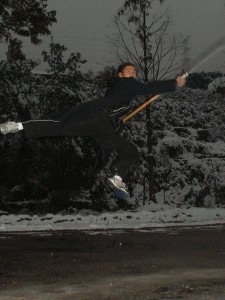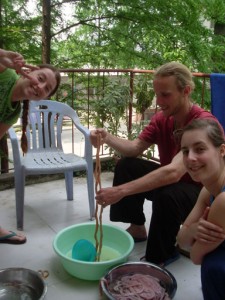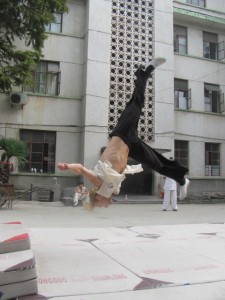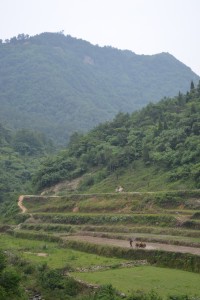 If you have read many of my posts, you’ve maybe noticed that no matter what sort of issue I am puzzling over, I always find myself coming back to yin yang theory and balance. When I ask myself what is good or which of two things is better, I always seem to conclude that everything exists in a continuum with its opposite, and that the two are inseparable, and the healthy range of behavior or evaluation on the continuum varies very much depending on the situation.
If you have read many of my posts, you’ve maybe noticed that no matter what sort of issue I am puzzling over, I always find myself coming back to yin yang theory and balance. When I ask myself what is good or which of two things is better, I always seem to conclude that everything exists in a continuum with its opposite, and that the two are inseparable, and the healthy range of behavior or evaluation on the continuum varies very much depending on the situation.
So to continue this trend, I want to talk about striving.
Certainly in certain contexts striving seems to be critical. When you are at a kungfu school, for instance. Kungfu is exactly the outcome of long-term, continual effort. We say here at the school, “Kungfu equals time multiplied by sweat.”
But striving so often seems to mean discontent and happiness, doesn’t it? We focus on the thing we want, the thing we can’t do, the unattained goal, and the distance to that goal seems so big and we feel we’ll never reach it and it is a terrible feeling. The other day, Shifu was talking about contentedness. He pointed out that, as an organism, all a person really needs to exist is nutrients – food and water. So unhappiness that rises not from hunger or thirst is the product of the mind and the mind alone. He compared us to trees – never having a mind, they grow and flourish without worry, as tall as their environment will allow.
One of my classmates replied with a story. He said he was in Peru once and a humble cheese-maker, who spent his days in his trade but mostly on his porch surrounded by his family, asked him, “Is it true that Americans are all very busy all the time?” My classmate agreed that was true. And the cheese-maker just started laughing as if that was the silliest thing he had ever heard. All of American wealth and prosperity and industry was a big joke to this poor Peruvian who knew he had what he needed. Shifu liked that story.
I have been stumped in trying to untangle the idea of striving into its continuum and opposite, its yin and yang. But I think this is because striving is actually the name we give the intersection of two more fundamental pairings: work and rest, and agitation and calm. Striving is the name for working agitatedly. It does not have a direct opposite of its own because it exists in a complex continuum with resting calmly, resting agitatedly, and working calmly. It is hard to see the value of working or resting in an agitated way, and indeed much of my time is spent trying to free myself from habitual agitation in any mode. But remembering the model of yin and yang, I am forced to reflect that agitation too has its time and place.
Because even balance has to be balanced with imbalance – perfectly balanced forces are static, and what is life if not dynamic?

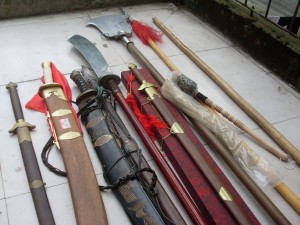 Just 4 months left in my time here in Wudang. We use the word graduation to refer to September 1st of this year for lack of a better word, but in some ways it is appropriate. Like every graduation I have experienced so far, these months leading up are full of all kinds of things: trying to cram every last bit of training in to get the most possible out of the time, getting ready emotionally to say goodbye to what has been my home for the last five years, trying to imagine what the future holds after graduation and be ready for it, and also tending to all the little logistical trivialities that actually seem to make up most of life.
Just 4 months left in my time here in Wudang. We use the word graduation to refer to September 1st of this year for lack of a better word, but in some ways it is appropriate. Like every graduation I have experienced so far, these months leading up are full of all kinds of things: trying to cram every last bit of training in to get the most possible out of the time, getting ready emotionally to say goodbye to what has been my home for the last five years, trying to imagine what the future holds after graduation and be ready for it, and also tending to all the little logistical trivialities that actually seem to make up most of life.
